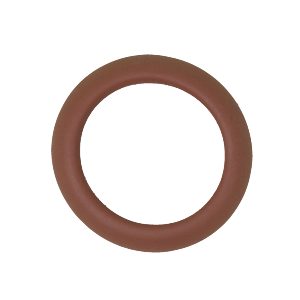What are hemorrhoids?
Most people will experience hemorrhoids at some point in their lives - statistics say 1 in 3. But what exactly are hemorrhoids and what can you do to prevent them? Read our guide here
So what are hemorrhoids?
Hemorrhoids are bulges in the blood vessels and veins around the rectum and anus. They can form just under the skin around the anus, and look like small bumps. Others are inside the rectum, and can only be seen with an endoscopy.
They are further divided into 4 grades depending on their size and severity:
1st grade: The hemorrhoids are on the inside of the rectum and cannot be seen from the outside. They may still cause bleeding and pain
2nd degree: The hemorrhoids are on the inside, "fall out" during bowel movement, but slide back in after.
Grade 3: The hemorrhoids are on the inside, "fall out" during bowel movement but do not slide back in afterwards. They can however be "pushed" back into the rectum.
4th degree: The hemorrhoids are always on the outside and cannot be pushed in. Note that this grade is a rare condition!
Grade 1 hemorrhoids cannot be seen, so an endoscopy is needed to confirm them. Grades 2, 3 and 4 however can be seen, and they typically look like dark red bulges around the anus. You can use a small mirror to check yourself if you experience itching and pain.
What are the symptoms of hemorrhoids?
- Itching, stinging and pain in and around the anu
- Bleeding after bowel movements, blood may be seen on the toilet paper or in the toilet
- Lumps that can be seen and touched
Bleeding is a very typical symptom of hemorrhoids, and not a reason to panic. But to be on the safe side, always seek medical attention if you experience bleeding or persistent pain from the rectum - it could be something other than just harmless hemorrhoids!
Why do you get hemorrhoids?
The blood vessels around the anus can stretch and create bulges, hemorrhoids, when they are subjected to an increase in pressure. This means that hemorrhoids can be linked to:
- Straining too hard when you go to the toilet
- Chronic constipation / too little fibre in the diet
- Regular heavy lifting
- Pregnancy
- Anal sex (typically without enough lube)
As you get older, you are also more likely to get hemorrhoids. This is because the tissue supporting the blood vessels in and around the anus becomes weaker over time and therefore stretches more easily. The same is true when you are pregnant, as the weight of the baby puts more and more pressure on the area around the rectum over time.
Are hemorrhoids dangerous?
The word hemorrhoid sounds a bit serious, but in fact hemorrhoids are quite harmless. They can cause discomfort such as itching, stinging and pain, but are not really dangerous to your health. For most people, it's the appearance of the hemorrhoids that bothers them.
Some people also find that hemorrhoids that have gone away leave behind small flaps of skin. These are skin-coloured bumps that, unlike hemorrhoids, do not bleed or hurt. Again, they are not dangerous, but can be a cosmetic nuisance and can also get in the way when wiping.
In very rare cases, you can get anaemia if you have constant bleeding from a hemorrhoid. But that takes a lot of blood and time, so don't freak out! Besides, you should always see a doctor if you experience bleeding from the rectum - whether you know it's caused by a hemorrhoid or not - meaning anemia will like not have time to develop if you see a doctor.
If you have 3rd or 4th degree hemorrhoids, you may also find that the hemorrhoid sometimes get "stuck" or is pinched by the sphincter. This causes a very sharp pain, which is not dangerous, but quite unpleasant. If you have persistent pain around the anus and rectum, make sure you see a doctor too!
How do you treat hemorrhoids?
Hemorrhoids can be examined and treated in several ways.
When you go to the doctor, in most cases they will examine with their fingers and/or do a "mini endoscopy", also called an anoscopy. An anoscopy, examines the first 10 centimetres of the rectum, as the hemorrhoids are always in this area. Depending on the severity, there are several different treatments:
- Ointment: Typically used for 1st degree hemorrhoids and should be used 2-3 times a day for 1-2 weeks. It is important to insert the ointment slightly into the rectum with your finger, as this is where the hemorrhoid is located.
- Elastic method: Used to remove medium-sized, external hemorrhoids which are typically of the 2nd degree. With this method, the doctor will place a rubber band around the hemorrhoid thus cutting off the blood supply, and after a while it withers and falls off. It sounds a bit crazy, but it's a good alternative to surgery and successful in 80% of cases.
- Surgery: Typically used on 3rd and 4th degree hemorrhoids. The healing period after surgical removal is quite uncomfortable and there is a risk of the hemorrhoids coming back. It is therefore rare that doctors to recommend surgery. However, it may be necessary if the hemorrhoids create great discomfort or if the tissue is stretched so much that you experience rectal prolapse - that is, 1-2 cm of skin and mucosa (anal prolapse) or a large amount of rectum (rectal prolapse) protruding through the anus.
How can you prevent hemorrhoids?
There are several things you can do to prevent hemorrhoids. Here are some guidelines that are helpful to follow:
- Drink plenty of water
- Make sure you have (enough) fibre in your diet
- Do not push or strain when defecating!!
- Avoid too much heavy lifting
- Avoid sitting down too much
- Use lubricant when having anal sex!!
And remember, if you have or get hemorrhoids later, it's perfectly normal and typically quite easy to treat.
Read also: Can sex toys make you lose sensitivity? Questions and answers about vibrators
Read also: Our guide to penetrative anal sex





